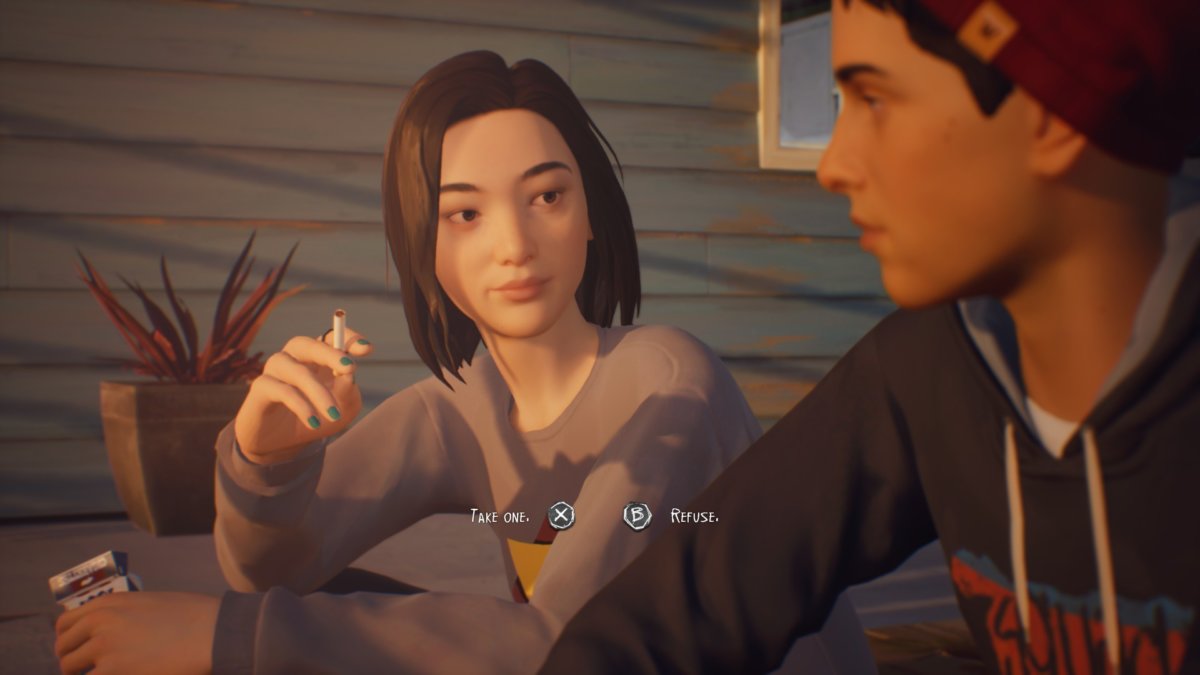Latest News
Life Is Strange 2 Doesn’t Shy Away From Controversial Subjects

This article summarizes the results achieved in Chile in 2015 that have been explored to exploit the debate on controversial sexual development issues and Life Is Strange 2 Doesn’t Shy Away From Controversial Subjects.
. In particular, 74 first-semester students aged 14 to 15 investigated the possibility of criminalizing marijuana in Chile and discussed the denunciation of Chile by the Bolivian government before the international court. From Hai (Netherlands). The findings confirm the considerable potential of this type of citizen learning capacity by giving students high visibility of this method and the need to integrate this type of subject into the new subject in order to educate a citizen of Chile.
Summary: This article presents the results of Chile in 2015, which questioned the potential for controversial issues on the development of civic competences. Seventy-seven students, ages 14 to 15, discussed the possibility of criminalizing marijuana in Chile and harassing the Bolivian navy against the Chilean government before the International Court of Justice in Hai (Netherlands). Below). The results illustrate the considerable potential of these problems for the development of civic skills, a very positive evaluation of this method by the students and the need to integrate this type of problem into the new theme of Chilean citizenship.
Introduction
This article analyzes the experiences of an educational unit based on the discussion of controversial topics that aim to develop the skills of citizens among students. This should help identify the strengths and weaknesses of this proposal as well as the assessment of the participating students.
In the first step, the possibilities of discussing the differences regarding the new theme of Chilean citizenship were mentioned. This will explain the different methodological aspects of this study and present the results. Finally, a series of conclusions were formulated on the completed project and the need to discuss educational programs that put students at the center of the teaching and learning process.
Problem
The Chilean Ministry of Education (MINEDUC) has recently developed a new topic on secondary citizenship. However, the research carried out so far raises a number of challenges for achieving correct implementation (Magendzo and Toledo, 2009). In this sense, Bonhomme, Cox, Tam and Lera (2015) are particularly concerned about networking a considerable number of social science teachers with ingenious teaching methods.
At the same time, the so-called “mutual learning” of the program, which was taken from the knowledge of citizenship in the classroom, was marginalized by the obligation of schools to ensure that students kept the content. In the prescribed exam of disciplinary examinations. National SIMCE measures (Salinas, O’Lear and Muñoz, 2016).
However, with optimism, we believe that the new course on citizenship is a valuable opportunity to apply innovative teaching methods to Chilean schools. At that time, the study was localized, making debating theory on controversial issues an instrument for building citizens’ capacity (Claire & Holden, 2007). This initiative should reflect the benefits and potential of this pedagogical approach. Santisteban (2012) expresses the validity of this proposal, which states:
… Social and civil competencies can only be developed by students working on important social issues … related social issues or controversial issues (Santisteban, 2012: 227).
We must remember that community life involves an uninterrupted and unlimited series of conflicts. Therefore, the prerequisite for a democratic society is the ability to handle these conflicts with respect and dialogue. In this sense, the school – or the education system – avoids the existence of controversy and its responsibility to society.
Harper Harrison is a reporter for The Hear UP. Harper got an internship at the NPR and worked as a reporter and producer. harper has also worked as a reporter for the Medium. Harper covers health and science for The Hear UP.










